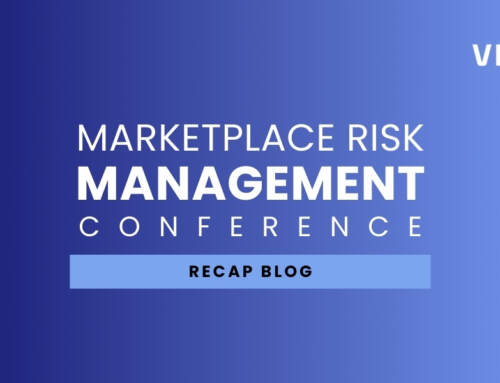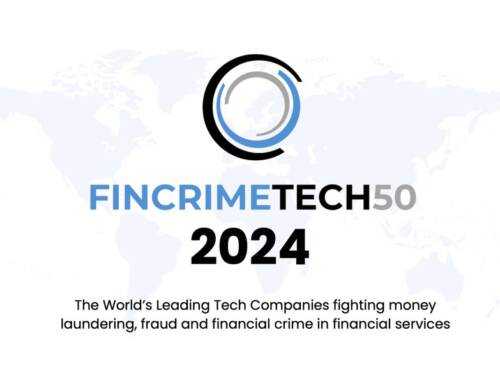On February 28, Vital4’s Co-Founder and President hosted a panel discussion with Background Screening veteran, Bruce Berg of Berg Consulting group and Kristin Stafford, Co-Founder and CEO of Vital4.
The panel started off the conversation with a lookback on 2022 and the trends that emerged in the industry, as well as what to expect in 2023. Some of the trends mentioned in 2022 were automated background checks, blockchain, redaction of birthdates, drug screening, and ongoing monitoring. Bruce was congratulated on his 79th transaction and fourth deal in 2023. Consolidation in the industry was a hot topic, and Bruce mentioned that despite a general slowdown in investment in other industries, he said M&A activity remained steady for the background screening industry which was good news.
There was a focus on the legalization of marijuana in many states, which would impact employer policies and will remain a topic on our radar looking forward into 2023. There have been a growing number of positive drug tests in the workplace – especially marijuana due to how many states are legalizing it. Employers should expect growing challenges as they address this with their existing polices and consider the legal use of the drug in respect to their employees.
Kristin Stafford discussed the slight downward trend in global screening to the tune of about 14%, Bruce then cited FADV’s Q4 report with expectations that global screening would be down in 2023.
According to Vital4’s customer base, continuous monitoring and rescreening are becoming more popular. The types of data that customers wanted to monitor included criminal records, sex offender lists, motor vehicle records, adverse media, watchlists, and social media.
In 2023, Vital4 will continue to spread the word and educate the industry on the CFPB’s new rule. Kym Kurey presented at PBSA and hosted a past webinar with Sarah Byrne, the Attorney who helped craft the rule. Here is a brief recap of what was discussed:
- The CFPB passed a new rule based on the Debt Bondage Repair Act (DBRA), which amended the FCRA, Section 605(c), by adding requirements to assist human trafficking victims. The new rule went into effect July 2022.
- CRAs must respond to a victims request within four business days of receipt, as well as other time sensitive and specific requirements
- CRAs must provide additional (physical) mail addresses and phone numbers, as well as information on their website that addresses the process for victims to follow. The Vital4 webinar with Sarah and Kym is available on our website; both Sarah and Kym are available for further questions. Click here to see the webinar.
Clean slate and privacy laws, and growing state and local laws were discussed. The purpose of clean slate laws is to help people with criminal records have their records expunged or sealed after a certain amount of time to obtain better jobs. We expect many more states to follow.
- Connecticut and California’s clean slate laws went into effect on January 1, 2023
- Michigan’s new law will take effect on July 1 of this year
This will greatly reduce the amount of information an employer can use to hire, which will be a continuous challenge with different laws across states and local governments. This year, privacy laws will have an increasing impact on background screening. Since there is no federal policy in place, it will be necessary to keep up to date with the changing privacy policies in each state.
- California and Michigan have removed date of birth as a personal identifier from public records, restricting access to information typically used by screeners when conducting a background check.
- This makes it extremely difficult, if not impossible, to quickly and efficiently provide complete, accurate and thorough background screening reports.
- PBSA was successful in reaching a solution in Michigan, where screeners have been given permission through a registration process to get access to unredacted records.
Bottom line. Every state is different, you must keep up with what states have legal marijuana laws, which are recreational versus medical or both, what PII is available, accessibility of criminal information, etc.
In the international screening sector, there are always barriers to criminal data. Like the United States, there are different data privacy laws in every country and territory around the globe. Vital4 keeps up with all these laws and is a resource to any CRA that is looking to break into the global screening market. CRA’s need to have the ability to screen on a global basis so they can compete with the likes of the global CRA’s by providing expanded services to support the growing diverse workforce made up of people who have worked, lived, or been educated outside of the United States.
The economy and job reports were also discussed. Raphael Bostic, President of the Federal Reserve Bank of Atlanta recently was quoted saying… “on the national scale, the economy has continued to respond much faster to downturns than it has in the past, during the pandemic, we saw record-breaking numbers of job losses – yet, within three years, the number of jobs in the economy is back to pre-pandemic levels, whereas it took the U.S. nearly nine years to do the same after the Great Recession.”
According to Raphael, there is a good chance the economy will respond more rapidly than previously thought in terms of the inflation we’re currently seeing. If proven true, this is excellent news.
Predictions were blown out of the water in the January job report. A few highlights from the report:
- 517,000 new jobs were added, the highest added since July
- 3.4% unemployment – the lowest rate in 53 years
- Hottest sectors (everything besides tech – recruiters are crushing it): leisure and hospitality, health care, construction, professional and business services
With all this interesting news around the economy and jobs, generally speaking – Private Equity has extra funds now because they pulled back in the second part of last year and evaluations are down so it’s likely a better time to invest now compared to during peak evaluations. Bruce commented on how many years of consolidation in the industry has directly impacted CRA’s. Bruce said, “Deals in last couple of years that could have a direct impact on many C RAs include”:
- Merger of SJV and Wholesale Screening
- Acquisition of Appriss by Equifax
Bruce said, “We announced four deals thus far in 2023 with another done but not announced for 90 days. Two other deals completed in 2023.” This seems like a pretty good start to 2023 if you ask us! Bruce also stated that he doesn’t see any issue in the way of available capital and that investors remain bullish on the background screening industry. What was Bruce’s advice to the background screeners that might be interested in a transaction in the near future? “Get your financials clean and up to the minute.”
All in all, we had a great conversation and look forward to next year’s “2023 look back and predictions for 2024” with our favorite background screening guru, Bruce Berg!





